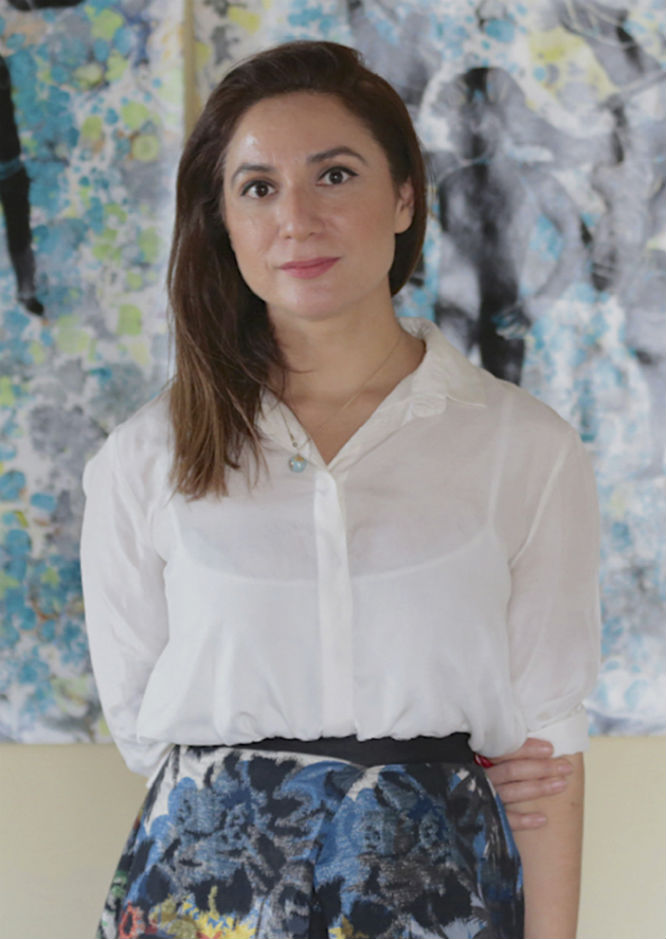Faiza Butt is an internationally-renowned Pakistani artist. Her work is held in many private and public collections including the British Museum and the Kiran Nadar Museum, Delhi. She was recently invited to speak at The Stellar International Art Foundation’s event on ‘Art, Sensuality and Feminism’.

From the masters of the impressionist era such as Van Gough and Picasso, to modern day artists including Hirst and Banksy, patriarchal western artists have typically dominated the art world. As a result, the term ‘modern art’ has come to denote the innovative and revolutionary developments among male artists in the late 19th Century and early 20th Century. But what about the perspectives of their female counterparts? Even to this day female artists continue to lack influence, with their artworks disregarded as insignificant and void of the potential to dictate modern narratives.
When I began forging my career over twenty years ago this engrained gender bias dominated the industry. Twenty years on and there have been some margins of progress, but the plight of female artists is still very much ongoing. Currently only 14% of living artists represented in European and North American galleries are women and the works by female artist sell for around one tenth of the prices for work by their male counterparts.
True, art schools do now have a healthy gender balance but once these trained artists are thrown into the professional arena, male artists are still taken more seriously. From studio ownership and gallery representation to art critiques and authorship, men therefore continue to dominate in all fields of power in the art world.
What is more, society still judges women if they appear to put their career ahead of their family and are not taken as seriously in a professional capacity. Too many extremely talented and gifted female artists have therefore been forced to give up on their passion as they’ve had to make a choice between their personal and professional lives.
In an age where campaigns for great gender equality are gaining momentum on a global scale, this continues to shock me. The field of art is meant to champion alternative ways of thinking, to encourage freedom of thought and challenge established systems of power. By denying female artists a platform to display their work, museums and galleries are restricting freedom of expression and limiting our cultural gaze.
This is a tragedy because female artists bring a unique vision and sensory experience to the debate on human condition. After all, artists are social commentators and the role of art in society has always been to promote a greater tolerance of beliefs.
Good art should give viewers varied interpretations and represent a range of emotional elements that audiences can relate to. It should ignite questions surrounding taboo subjects, rather than conforming to accepted norms. The absence of female artists from western galleries and museums therefore means that key discussions on gender parity, culture and power lack perspective.
It is therefore crucial that more is done to give a voice to these female artists who have been historically silenced. We must give them the encouragement and confidence that their talent is just as worthy of recognition as their male counterparts.
Forward thinking foundations such as The Stellar International Art Foundation are playing a crucial role in re-directing this narrative. By supporting female artists and giving them a platform to showcase their work to the world, foundations like Stellar are helping to raise the profile of female artists so that they become more than just a footnote in the grander narrative of contemporary art.
For instance, Stellar recently invited me to speak at their annual event on Art, Sensuality and Feminism. The event was designed to question the patriarchal western prejudices that have come to dictate the master narrative of art by encouraging discussions on gender equality. In line with the narrative of my work, the conversation took a critical look at social patriarchy and challenged the restrictive parameters that continue impede the progress of female artists across the world.
Faiza is being supported by the Stellar International Art Foundation as part of the organisation’s efforts to champion artistic talent regardless of background or gender. Established in 2008, Stellar has become internationally renowned for its content, coverage and activities around the globe and is a particular champion of female artists and feminist art.
Tagged in feminism

